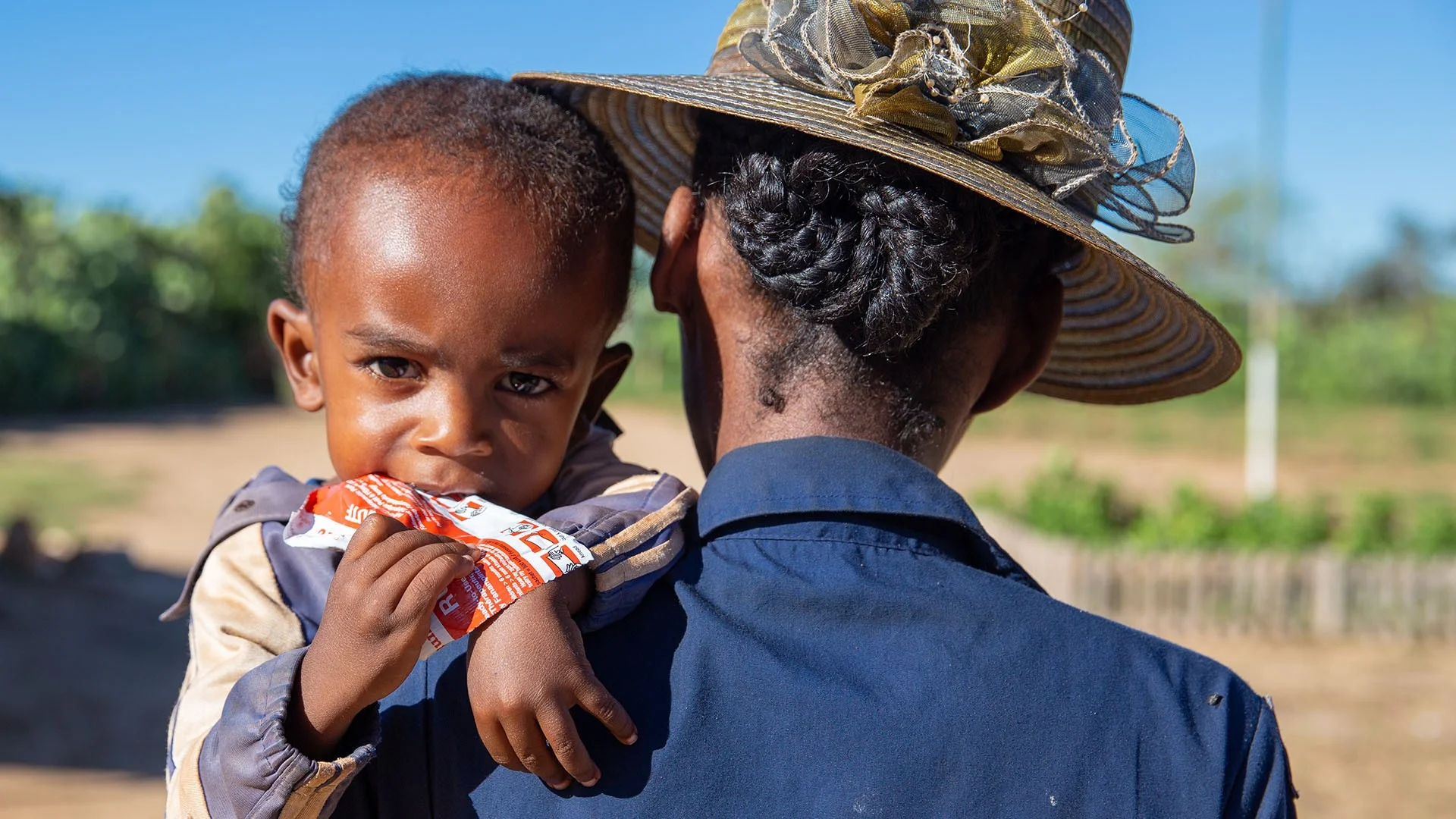Globally, almost one in three children under the age of five suffer from hunger, 15.6 million children under five are severely underweight, and over 75 million are underdeveloped. Chronic malnutrition in the first thousand days of a child’s life leads to irreversible developmental disorders. UNICEF is committed to identifying and tackling child malnutrition.
The situation
Constant hunger is insidious. It causes damage slowly: a child’s physical and mental development is impaired long before malnutrition becomes apparent. In far more cases, however, it is poor nutrition rather than too little food that leads to chronic malnutrition. In 2020, 149 million children worldwide were too small for their age, 45 million were too light for their height due to acute malnutrition, 340 million children did not receive adequate quantities of vitamins and nutrients such as vitamin A and iron, and 39 million children were overweight or obese.
Inadequate nutrition and disease form a deadly spiral: even children who are only slightly malnourished are much more susceptible to pneumonia, diarrhea, malaria and measles. Children under the age of two are especially at risk of irreversible damage. Chronically malnourished children cannot reach their full potential, and an unfair start results in a lifetime of disadvantage.
Early breastfeeding reduces mortality rates
On average, only 45 percent of newborns are placed at their mother’s breast immediately after birth, and only 42 percent of babies are exclusively breastfed for six months. Yet children who receive supplementary food at an earlier stage are at much higher risk of dying from diarrheal diseases or pneumonia. Breast milk also strengthens their immune systems, a potentially lifelong benefit.
How UNICEF helps
UNICEF is firmly committed to fighting hunger and malnutrition, using both tried-and-tested methods and new, innovative approaches.
- The Children’s Fund supports health centers where babies are regularly measured and weighed.
- UNICEF works to fortify staple foods such as rice, flour and salt with iodine, iron, folic acid, vitamin A and zinc.
- UNICEF-trained helpers inform parents about simple and inexpensive ways to improve their children’s nutrition, such as with nutrient-rich vegetables and eggs.
- In crisis regions, UNICEF takes responsibility for supplying children with specialized life-saving food.
- UNICEF provides clean water, sanitary facilities and information about simple but effective hygiene measures.
- UNICEF supports innovative projects such as Rapid SMS to detect malnutrition and respond to it more quickly.
- UNICEF supports nutrition centers that are open around the clock for severely malnourished children, provides specialized therapeutic food, distributes vitamins and minerals and provides targeted nutrition for orphans.
- UNICEF supports expectant mothers with decentralized healthcare and information about nutrition, health and breastfeeding. Many mothers do not know that breast milk contains all the important nutrients a baby needs and also strengthens the immune system.
- Together with the World Health Organization (WHO), UNICEF launched the Baby-Friendly Hospital Initiative in 1991 to promote breastfeeding in hospitals.
